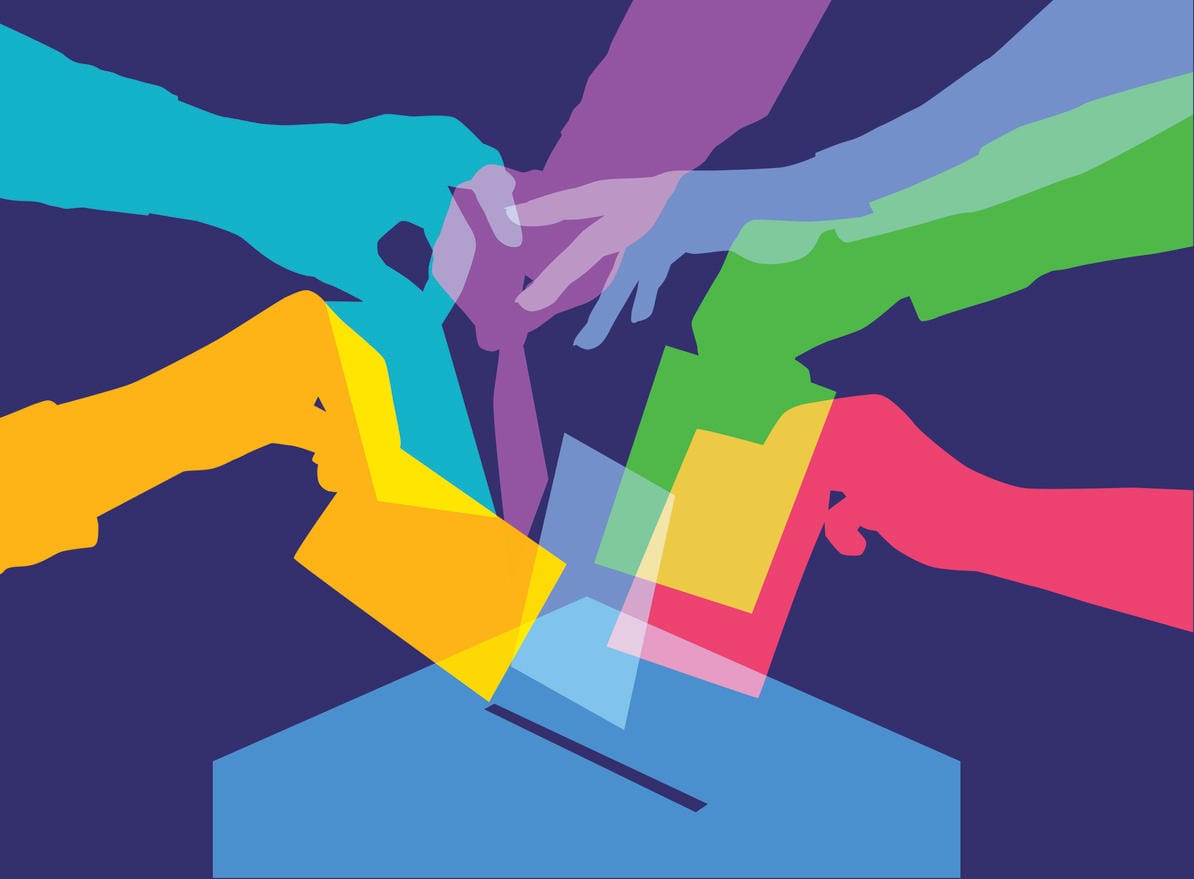
The Victorian election for both the Legislative Assembly and the Legislative Council has been held, and enough of the vote has been counted to declare Daniel Andrews and his colleagues in the Australian Labor Party the winners.
The Andrews government has been returned with what appears to be a significantly enhanced lower house majority. The situation is not so clear in the complicated upper house election, but projections have Labor on 19 out of 40 seats.
This emphatic outcome has taken commentators by surprise, notwithstanding the fact that opinion polls were finding strong two-party support for Labor. We commentators could not believe that a government that had been afflicted by internal factional fights (some of which involved a powerful affiliated union), that had had members resign or ostracised for misusing their parliamentary entitlements, and was under police investigation over funding arrangements for the previous election could hope to win seats from the Liberal opposition.
Pre-election speculation involved wondering if Labor could defend its marginal seats and, if not, whether the Greens would act as power-brokers in a “hung” parliament.
Polls proved true
As it turned out, the opinion polls were correct. Not only did Labor defend its margin, it’s won a clutch of seats from the Liberals, some of which had previously been thought of as safe Liberal districts. The Greens also lost a bit of ground, losing the seat of Northcote that the party won in a by-election in 2017. The prediction of a Greens surge in inner districts such as Brunswick and Richmond failed to materialise, and the party might even be reduced to a single seat in the Legislative Council.
Meanwhile, in rural Victoria, the National Party failed to regain Shepparton from sitting independent Susanah Sheed, and may be about to surrender Mildura to another independent.
The last time a Victorian election resulted in such an emphatic victory for one of the major parties was in 2002, when Steve Bracks and Labor crushed all before it following three years of minority government. In that election, the Liberal opposition had been in total disarray. It had toppled leader Denis Napthine in favour of Robert Doyle just months ahead of the election, and the coalition campaign ran into serious trouble when it was revealed that then shadow attorney-general Robert Dean was not on the electoral roll. Labor won a landslide at the election, with even historically safe Liberal seats returning record swings to the ALP.
The leadership spill that took down Malcolm Turnbull at the behest of the ultra-conservatives in the federal party room has clearly damaged the party’s reputation to the extent that even the state divisions are suffering.
The severe extent of the swing to Labor in very safe urban and peri-urban Liberal seats has been a feature of this election, too, yet the pre-election circumstances have been very different. Unlike 2002, the state parliamentary Liberal party had been extremely stable in the lead-up to this election (the organisation less so, and that was clearly a problem, but hardly one that would warrant huge swings to Labor in safe seats).
Opposition leader Matthew Guy had no leadership challenges to contend with and no sitting member appeared to have fallen off the roll. Moreover, the opposition had a narrative around criticising the Andrews government for its lack of integrity and problems in managing law and order. In post-election analyses the opposition has come in for some criticism over this aspect of its campaign, but it must be assumed that the Liberal Party pursued this issue because it figured in focus group responses to voter concerns about the Andrews government’s record.
Federal antics to blame
So, if there were few instances of internal revolt or dysfunction within the state parliamentary Liberal Party, and if an opposition simply did what we expect oppositions to do in a Westminster system (that is, pick up on the government’s policy weaknesses and campaign on them as hard as possible), what caused the Victorian electorate to respond to a bombastic and error-prone Labor government buy dishing out a hiding to the opposition rather than to the government?

By a process of elimination, the answer has to be linked to national politics and the performance and behaviour of the federal Coalition. The leadership spill that took down Malcolm Turnbull at the behest of the ultra-conservatives in the federal party room has clearly damaged the party’s reputation to the extent that even the state divisions are suffering.
The huge swings to Victorian Labor in previous Liberal citadels such as Brighton, Caulfield, Hawthorn, Sandringham and Kew can’t be explained by referring to the bonhomie of Daniel Andrews or the voter gratitude for infrastructure being rained down on these areas of affluence.
Clearly, the Liberal Party’s core constituency has turned on its preferred party and, for all their faults, it’s hard to see how Mr Guy and the state parliamentary Liberal Party could be the source of such anger.
No escape for Nationals
The National Party doesn’t escape the odium either, with the behaviour of former leader Barnaby Joyce clearly dismaying the party’s conservative rural constituency. The swing to independents, particularly in rural districts in the Victorian election, might be the harbinger of a greater incidence of voter realignment in the upcoming federal contest.
If the Victorian result reflects voter reaction not just to the state policy debate but to the way federal politics has been proceeding, then the state contest might be a pointer to the federal election. If this is the case, the Liberals stand to lose a swag of Victorian seats, including Dunkley (already a notional Labor seat after a redistribution), Deakin, Chisholm, Corangamite and LaTrobe. If that happens, Scott Morrison will no longer be prime minister, regardless of what happens anywhere else in the country.
Nick Economou was a senior lecturer at Monash University at the time of writing this article.





